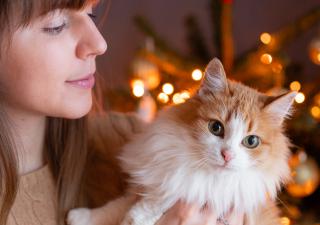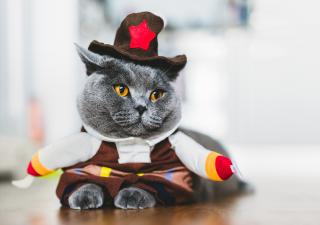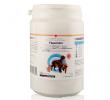
With age, our pets slow down, sleep more and become less active. Although this decreased intensity is often normal, sometimes it is related to pain caused by osteoarthritis (“rheumatism”). Many signs, which are fairly distinct, can indicate that your senior pet is in pain.
SIGNS OF JOINT PAIN IN SENIOR DOGS
Is your dog climbing the stairs slower than he/she used to? Is getting into the car more difficult? Is he/she sleeping more frequently? Your pet might have joint pain...
The following are classic symptoms of osteoarthritis in dogs:
Stiffness after vigorous activity
Stiffness when getting up or after a long period lying down
Reluctance to jump into the car or take stairs
Less vigour during walks
Tendency to lick or chew affected joints
Limping
SIGNS OF JOINT PAIN IN OLDER CATS
Cats that suffer from osteoarthritis are less inclined to climb onto low perches and have more difficulty grooming themselves, because they have lost joint flexibility. They may also stop using their scratching post.
The following are a few symptoms often observed in cats with osteoarthritis:
- They neglect their grooming
- They cannot jump as high as they used to
- They soil outside their litterbox
- They sleep less or sleep more
- They avoid contact with humans
- They hide
WHAT SHOULD YOU DO IF YOU THINK YOUR PET IS IN PAIN
If you are concerned about your pet’s behaviour, talk to your vet right away. He or she may prescribe a joint pain treatment plan.
Tips & Tricks
- Here are some tips to ensure your guests know how to interact with your dog during the Holiday season.
- Here are some tips to ensure a more pleasant stay for your friends and family with cat allergies.
- Do you know what pet insurance can cover? Here’s how it works.
- Contrary to dogs, cats have a profound hatred of costumes. Here’s why.
Products
- Zentonil®, to help support the cognitive function of aging pets, will help when your pet's liver is compromised…









